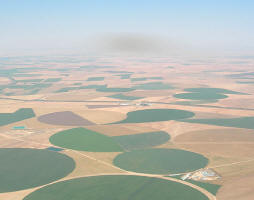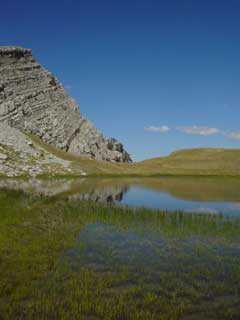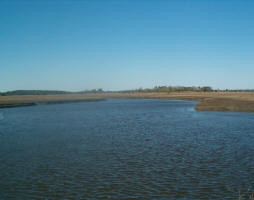 The West Delta Water Conservation and Irrigation Rehabilitation
The West Delta Water Conservation and Irrigation Rehabilitation
The West Delta Water Conservation and Irrigation Rehabilitation Project is Government of Egypt (GOE)’s response to resolve the problem of excess groundwater exploitation and to foster continued agricultural growth, employment and investment in the area. The Project proposes to implement a surface water conveyance system extracting water from the Nile River and initially to connect commercial farmers in the southern part of the area “Project Area”. In achieving this objective the Government also intends to introduce important reforms in the sector, particularly to charge farmers for the full cost of service through volumetric pricing. Such reforms are part of the Government’s own Integrated Water Resources Management (IWRM) Action Plan developed in 2005 to ensure correct incentives to conserve and utilize water more efficiently.
Project Preparation•Phase I: Initial Studies (2004) •Phase II: Conceptual Design and Impact Assessment (2005) •Phase III: Project Promotion and bidding (2006)
Phase I: Initial Studies3 •Technical options; •Groundwater survey; •Financial feasibility and tariff structure; •Institutional options and recommended transaction model; •Farmer’s willingness to connect; and •Legal framework.3Funded by the Public-Private Infrastructure Advisory Facility (PPIAF) of the World Bank
Phase II: Conceptual Design and Impact Assessment2 •Technical study; •Stakeholder promotion and Public information campaign; •Integrated analyses and impact assessment (DRAINFRAME Study); •Agricultural marketing for small scale farmers (on-going)2Funded by the World Bank
Phase III: Project Promotion and bidding2 •Promotion of project among potential investors •Preparation of bid documents •Pre-qualification of bidders •Bid management and evaluation2Funded by the Government of the Netherlands
| Project number | WDIP-001PPP | ||
|---|---|---|---|
| Subject(s) | AGRICULTURE , FINANCE-ECONOMY , HYDRAULICS - HYDROLOGY , METHTODOLOGY - STATISTICS - DECISION AID , POLICY-WATER POLICY AND WATER MANAGEMENT , WATER DEMAND | ||
| Acronym | WDIP | ||
| Geographical coverage | Egypt | ||
| Budget (in €) | 129495338 | ||
| Programme | National | ||
| Web site | http://www.mwri.gov.eg/wdip | ||
| Objectives | Its objective is to achieve full cost recovery, the Government also wishes to involve the private sector in the design, construction and operation of the new irrigation system and to share certain responsibilities for financing the investment costs, thus bearing certain risks as well as returns from this undertaking. While the Government fully endorses the Project and is willing to source a substantial amount of the related investment financing, it desires to assign responsibilities to the Private Operator for the design, construction, operations and maintenance of the activity and for it to assume the implementation and other related risks of these activities. | ||
| Results | Innovative Features: The West Delta Model Provides the Opportunity for New Thinking on Past Norms and Practices in Irrigation Sector. Contemplating PPP is About “Introducing Reforms”, the Most Important of which, is the “Pay for Service Concept”. This means introducing connect and disconnect policies and other commercial practices. nThe West Delta approach proposes to carry our essentially all of the procurement prior to going to WB loan approval, essentially streamlining implementation. nProcurement will be “output based” premised on lowest tariff on a lump sum contract, thus great simplifying construction supervision procedures. Lessons learnt: Farmers’ inputs in all aspects of the project implementation are essential. Traditional technical designs may not work for PPP schemes, where private operators require greater flexibility in implementation, higher efficiencies, more control of commercial policies, and tighter security against theft. While not explicitly subsidized, the Government’s efforts to mobilize financing will have an important draw for prospective private operators. Later, private operators can assume full risks of financing. Opens Up “Out-of-the-Box” Thinking such as “land for infrastructure swaps” or “agricultural parks” which could be introduced in other new areas in Egypt.. |
||
| Period | 01/01/2004 | ||
 you are not logged in
you are not logged in





